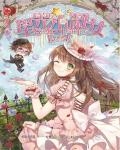Chapter 159: A Different Winter in the Grasslands and Peking
The grassland tribes’ excessive emphasis on their roots made the class stratification among the grassland tribes even more serious than that in the Han area during the feudal era, similar to a certain country in later generations.
The herdsmen were the property of the nobles, little more than slaves. Generally speaking, no matter how miserable their circumstances, they would not harbor any desire to rebel against the nobles.
But Zhu Wenzheng destroyed the grassland tribes that spent the winter in the grasslands south of the desert. The herders were not the only ones who suffered losses. The tribal leaders also spent the winter in the south.
When the cattle and sheep are robbed, it is not just the herders who will starve to death this winter.
The situation of the grassland tribes was similar to the feudal lord system in Western Europe.
In the feudal lord system of Western Europe, the king, the great lord, the small lord, and the knight could not issue orders across levels. That is, the soldiers under the knight only obeyed the knight, the knight only obeyed the lord, and the king then gave orders to the lord.
When the Yuan Dynasty collapsed, so did the Mongol tribal system. The Mongol king, the "Golden Family," could command the leaders of all tribes to lead their troops in coordinated battles, but the cavalry under each leader only obeyed the leader's orders.
This means that even small tribes have their own cavalry, which are young and strong herdsmen.
The Mongol nobles could starve the herdsmen to death, but they could not starve the tribal leaders, because when they did not want to provide aid, these tribal leaders would immediately lead the herdsmen to plunder their cattle, sheep and property.
Even if some tribal leaders can only muster a dozen cavalrymen, they will bravely become bandits.
We're going to starve to death anyway, so why not give it a try?
They all knew that if they gave in now, they would starve to death. If they took a gamble, betting that these high-ranking nobles didn't want to fight, at least these small tribal leaders would have food and clothing.
Herdsmen? Once they were full, the herdsmen who had fought so bravely with them would naturally have something to eat as well. The old and weak would naturally be left to die.
It just so happened that the descendants of Ariq Böke wanted to seize power from the descendants of Kublai Khan, the remaining Yuan Dynasty royal family. These small tribal leaders who showed their bravery were quickly recruited by them.
The expansion of the tribal forces of the descendants of Alibugha aroused the vigilance of the remaining Yuan royal family.
They also immediately recruited the young and middle-aged men from the tribes who had fled north to prevent the descendants of Alibugha from rebelling.
The remaining Yuan imperial family and the descendants of Ariq Böke also had a common enemy: the Oirat tribe, who ignored warnings and insisted on migrating eastward. This prompted them to frantically recruit young and strong cavalry from smaller tribes.
But there was only so much food to eat. If they gave food, tents, cattle and sheep to the tribes that had lost everything and fled north, then the people under their own rule would also lose food, tents, cattle and sheep.
At this moment, the remaining Yuan royal family could only abandon the appearance of the emperor and prince of the Central Plains, return to the brutal grassland slave owners, and abandon all the "slaves" who could not create benefits for them.
The old, weak, sick and disabled all became winter food for the birds and beasts on the grassland.
Such a cruel thing was unacceptable to the officials who fled north with the remnant Yuan court.
Most officials of the remnant Yuan court received a Confucian education. Whatever its shortcomings, Confucianism at least gave them a moral compass. For example, during famines, they offered relief if they were kind, and turned a blind eye if they were bad. But even the most wicked officials never resorted to the ruse of "since there's not enough food for the people, let's just kill them."
This is the advancement of feudal society compared to slave society.
Yuan Dynasty officials offered their advice one after another, and they all put forward many practical suggestions. These suggestions might be a little troublesome, but at least they would not be so morally bad.
For example, these old, weak, sick and disabled people could work for the nobles and receive daily rations. Even if they eventually died of exhaustion, it was at least better than killing them directly.
However, in order to consolidate their position as the "King of Mongolia" among the grassland tribes, the remaining Yuan royal family was unwilling to take even this little trouble.
Young and strong herdsmen can serve as cavalry and work for them. Why should they waste food to keep the old, weak and sick alive?
Some Yuan Dynasty officials lowered their bottom line again.
The young and strong herdsmen who could serve as cavalry were generally between fifteen and twenty years old. Could the age limit be relaxed a little? People in their thirties and forties could still do a lot of work. To support these people, the nobles only needed to eat one less sheep per day.
Even the leftovers of the great nobles, combined with water and hay, could feed many people.
The remaining members of the Yuan Dynasty royal family told the officials who followed them north to the grasslands that each place had its own customs and habits. In the Central Plains, nobles would be praised for sharing their leftovers with the people ; but on the grasslands, only warriors were worthy of eating the nobles' leftovers.
The nobles eat it once, the warriors eat it once, and the rest is fed to the cattle and sheep, and to the birds of prey and beasts on the grassland. It cannot be given to the useless herdsmen among the lowly herdsmen.
Anyone who does this will lose the support of the people.
The officials who followed the emperor and the prince to flee north suddenly realized that when they arrived at the grassland, everything was different.
The remnant Yuan Dynasty was no longer the Yuan Dynasty, but Mongolia.
Zhu Wenzhen returned with a full load ten days later.
Their knives were all replaced and became weapons of the grassland tribes.
Chen Biao congratulated them and sent a batch of cattle, sheep and furs to Yingtian to report the good news, and at the same time begged for alms from the court.
Look how pitiful we are in Peking. We can’t even get enough to eat from the military farms, and we are also being plundered by the grassland tribes. We beg the court to send more grain next year.
No one can starve but the soldiers on the border cannot starve, otherwise who will guard the border!
As for conquering Yunnan and suppressing the banditry, they also required money and food, but Chen Biao had no control over that. As the prefect of Peking, he was solely responsible for Peking's affairs, ensuring that the people and soldiers of Peking had enough to eat. Matters in other places were left to the local officials.
Zhu Yuanzhang held Chen Biao's memorial of poverty in his left hand and Chen Biao's shameless letter to his father in his right hand. He cursed: "Just wait! When you come of age, I will abdicate and become the emperor emeritus. Wait and you will have a headache!"
Ma Xiuying was at a loss whether to laugh or cry: "Guo Rui, you weren't old when Biao'er came of age. Let Biao'er rest for a few more years. He might resent you for years. You have to let Biao'er calm down."
Zhu Yuanzhang continued to curse: "What's there to vent your anger on! He's the emperor, and he's still angry with me?!"
Ma Xiuying said: "Of course, he must be angry with you."
Zhu Yuanzhang: “…”
Zhu Yuanzhang changed the subject and scratched his hair vigorously with both hands: "Why is there so much trouble after becoming an emperor! How can I have so much money and grain! Should I follow the example of the Yuan Dynasty and print paper money to help the people first?"
Ma Xiuying said, "Isn't Biao'er trying to find a solution? Perhaps we can ship grain from overseas."
Zhu Yuanzhang sighed, "The cost of shipping grain overseas is so high. Only 20% to 30% of the grain shipped from the south to the north remains. Can the grain purchased from even more distant places really justify the cost?"
Ma Xiuying said, "You can't eat the gold, silver, and jewelry. Even if you can only keep one or two tenths of them, as long as it can solve your immediate problem, it's a profit."
Zhu Yuanzhang thought of the large amount of treasures shipped from Peking, and said with a forced smile, "That's true. Forget it. If we let the people suffer now, it will only cause trouble for Biao'er when he ascends the throne. It's better for us to suffer on our own."
Ma Xiuying joked, "How much can our family use? As long as you don't have a harem of three thousand concubines and a large number of descendants."
Zhu Yuanzhang said angrily, "Even if I wanted to raise him, wouldn't he end up being my son? Biaoer has such a bad temper, he'll definitely get sick from it."
Zhu Yuanzhang looked very sad.
Since Biaoer started making money, at least half of the money he earned in conquering the world came from Biaoer. Although the Chen family used "Zhu Yuanzhang's resources", how to use these resources was the final decision of Chen Biao, who then arranged for Li Shanchang and others to carry out the work.
He told many of his subordinates that they were "Xiao He", but even Li Shanchang himself knew that the person who was most like Xiao He among the founding heroes of the Ming Dynasty was Biao'er.
It was not until Chang Yuchun became the Marshal of Military Farming that he was able to take away half of Xiao He's credit.
Who in this world doesn’t know that the Chen family is the money bag of the Zhu Dynasty?
So now there are people who are sarcastic to the Chen family every day, and some people even make up nursery rhymes, singing "The Zhu family has power, the Chen family has money", "The Zhu family is the emperor, and the Chen family is the world".
If Chen Guorui was not himself , the Chen family would probably have been abandoned by the founding emperor of the Ming Dynasty.
Thinking of the ballad that had been sung in Yingtian recently, Zhu Yuanzhang was filled with anger again.
He was very worried that Chen Biao would hear these songs, causing unnecessary worries and affecting his mood.
Fortunately, he sent his son far away to Peking, so he would not be affected by these villainous tricks for the time being.
…
Chen Biao didn't know that someone in Yingtian had already started using the Chen family's eye drops.
Among these people who are interested in Chen family, there are not only the former enemies of the Ming Dynasty who hate the Chen family, but also many meritorious officials of the Ming Dynasty.
Jealousy is an inevitable sin of human beings.
When the first month of the lunar year arrived, Chen Biao gritted his teeth and got some gunpowder to make fireworks, so that the people of Peking could have a lively New Year.
Beiping, transformed from the capital of the Yuan Dynasty into a frontier of the Ming Dynasty, inevitably became unbalanced among the people. This imbalance caused many people who had previously lived a comfortable life without worrying about starvation to miss the Yuan Dynasty, threatening the safety of Beiping.
Most people are vulgar and only care about their own interests. Chen Biao cannot expect everyone to have a high moral standard and sufficient foresight. He can only work hard to make most people in Beiping believe that life is getting better and better, more and more hopeful, and not miss the past Yuan Dynasty.
People who had once been on the verge of starvation now had a daily meal to eat, and those who had once been able to eat to their heart's content now had fireworks to watch and treasures from the south and overseas to buy. Only by satisfying the needs of every class could the people of Peking maintain their peace of mind.
Of course, when it comes to satisfying the needs of the people who are well fed, Chen Biao's business acumen will not let him work in vain.
He set off fireworks in the royal gardens of the Yuan Dynasty, sold tickets, and stipulated different levels of seats. He sold the tickets in the name of "charity". One third of the proceeds were put into the treasury, one third was given to the camp outside the capital, and one third was converted into food and given to the poor people who had difficulty surviving the winter in the name of a "fireworks charity banquet."
The wealthy people in Peking donated generously, which was much easier than going door to door to ask for their support.
Chen Biao also imposed a "luxury tax" on treasures shipped from the south and overseas, legally and reasonably collecting money from the rich.
He summoned scholars to brainwash the wealthy, telling them that in Peking, buying these luxury goods wasn't about enjoying extravagance, but about contributing to the Ming Dynasty and the people. Every treasure you bought supported a soldier guarding the border, helped a starving civilian, and funded a public school student.
You are all great people!
Thanks to Chen Biao's marketing, the rich once again donated generously.
For all goods that pay luxury tax, the rich will be given a "tax payment certificate" to prove that the treasures sold in the store are not tax evaded, so they are so expensive.
These "tax payment receipts" are also the certificates for shops to sell luxury goods, just like "salt permits".
Even in modern society with advanced regulatory measures, some people still evade taxes, and it was even easier in feudal society.
Chen Biao preached in Peking , "Rich people should do more good deeds when they enjoy happiness. If they pay taxes on every bit of enjoyment, it is a good deed, so as not to harm their virtue." He also hired some "shills" to show off his wealth, specifically by showing off the tax receipts he received for purchasing luxury goods.
“How can we know if it’s real or fake without the tax payment receipt?”
"If you don't have money, don't try to be rich by buying smuggled goods from unscrupulous people whose authenticity you don't know."
"Is this a tax payment receipt? No, this is a certificate of authenticity! It's a good item approved by the government!"
"Buying jewelry that doesn't require tax, doesn't that mean it's stolen property?"
"You can enjoy yourself and do good deeds at the same time, killing two birds with one stone, so why not do it?"
"I don't care about paying taxes or anything like that. I just chose Chen's shop. Everyone in the South knows that the things produced by Chen's shop are rare treasures. Other imitations are inferior."
Chen Biao spit out a mouthful of tea: "Is there anyone else saying that?"
Li Zhen managed the business in Yingtian and only came to Beiping when goods were shipped in. "I did hear many people say this when I entered the city."
Chen Biao sighed, "The Chen family is so big that it attracts attention. Sigh, it seems I have to find a way to donate all the Chen family's shops to His Majesty and become an imperial merchant."
I feel sad and can’t bear to let go!
Seeing Chen Biao's aggrieved look, Li Zhen felt very sorry.
If Biaoer knew that he was the prince, there wouldn't be so much trouble.
However, if Biao'er knew that he was the prince, he would definitely not stand from the perspective of a non-prince and complain about the emperor to Chen Guorui, who was not the emperor. His brother-in-law would not constantly examine his actions from the perspective of a non-emperor.
Biao'er didn't know that he was the prince, and didn't know that Chen Guorui was Zhu Yuanzhang. This caused a lot of trouble for Biao'er himself, but it was a blessing for the emperor and people of the Ming Dynasty.
Li Zhen's thoughts wandered for a moment before returning to the main topic: "Becoming an imperial merchant isn't bad either. His Majesty won't mistreat the Chen family. Biao'er, didn't you once say that power is better than wealth? As long as you have power, you'll definitely have wealth, right?"
Chen Biao patted his chest and pursed his lips, saying, "That's true... but I still feel bad. Never mind, I'll write a memorial to donate my property right away. Aww, so sad!"
Li Zhen was at a loss for words and came up with a rare "bad idea": "If you're distressed, complain to Guo Rui more and have him ask His Majesty for more benefits. His Majesty isn't suspicious of the Chen family yet. If they offered their property on their own initiative, he must feel guilty and will make amends to them."
Chen Biao sighed, "I don't need him to make amends. As long as he can support the Chen family's continued voyages, that'll be enough. I'm afraid that after the Chen family becomes an imperial merchant, every move will require the approval of the ministers in the court. This will make it difficult to execute many of my plans."
Li Zhen said: "Don't worry about this, His Majesty must have known this."
Chen Biao complained, "Your Majesty may not know what's going on. He might be deceived by those ministers who don't understand economics. Sigh, I'll write a few more words to Dad, hoping he can persuade His Majesty. If he can't persuade you... there's nothing I can do."
Let Emperor Zhu worry about the Zhu family's empire. My Chen family can only fulfill its duty of persuasion.






